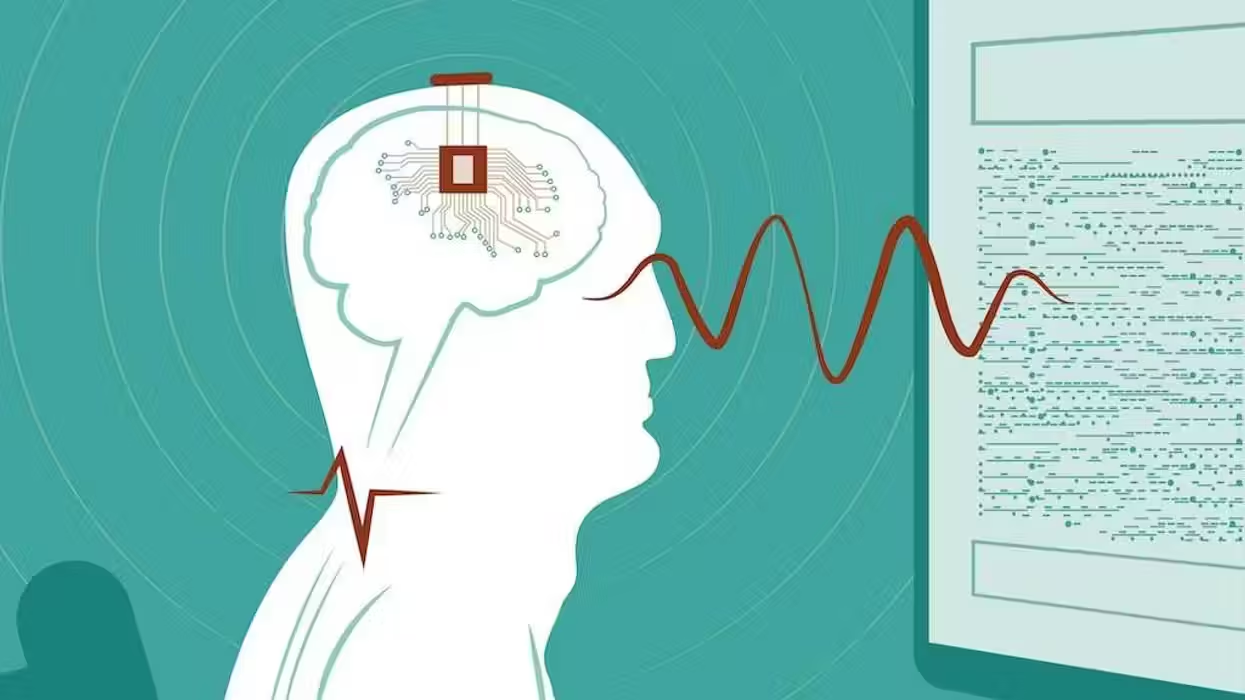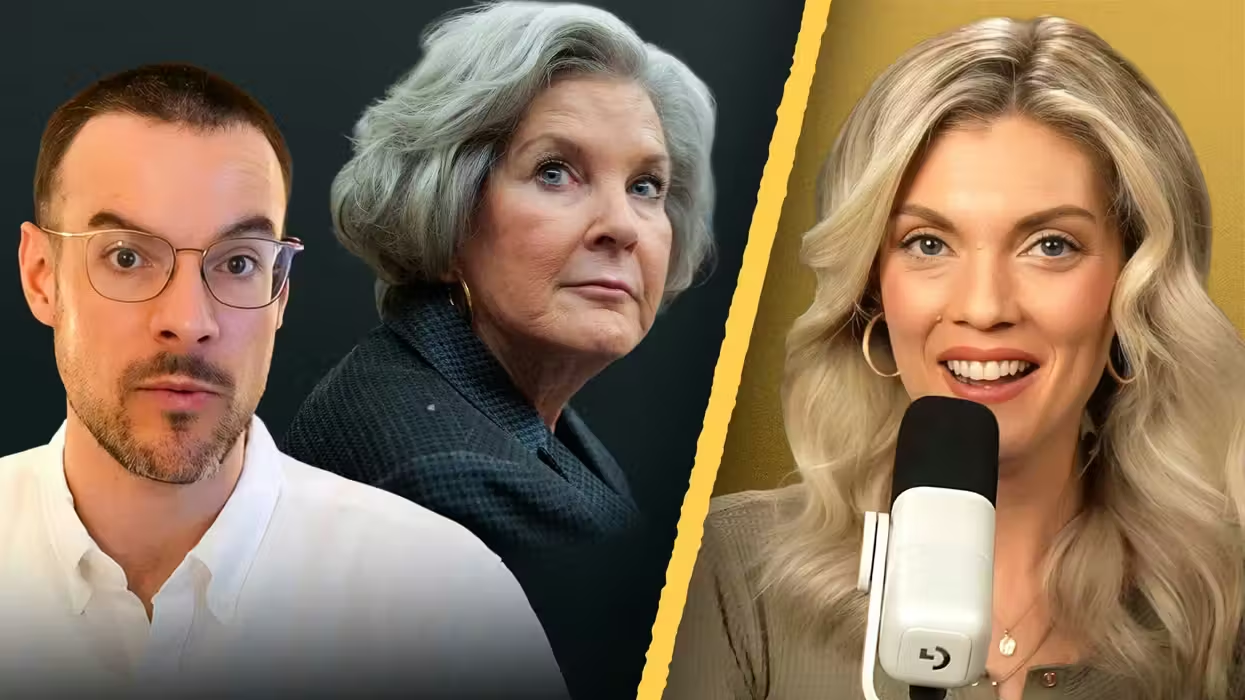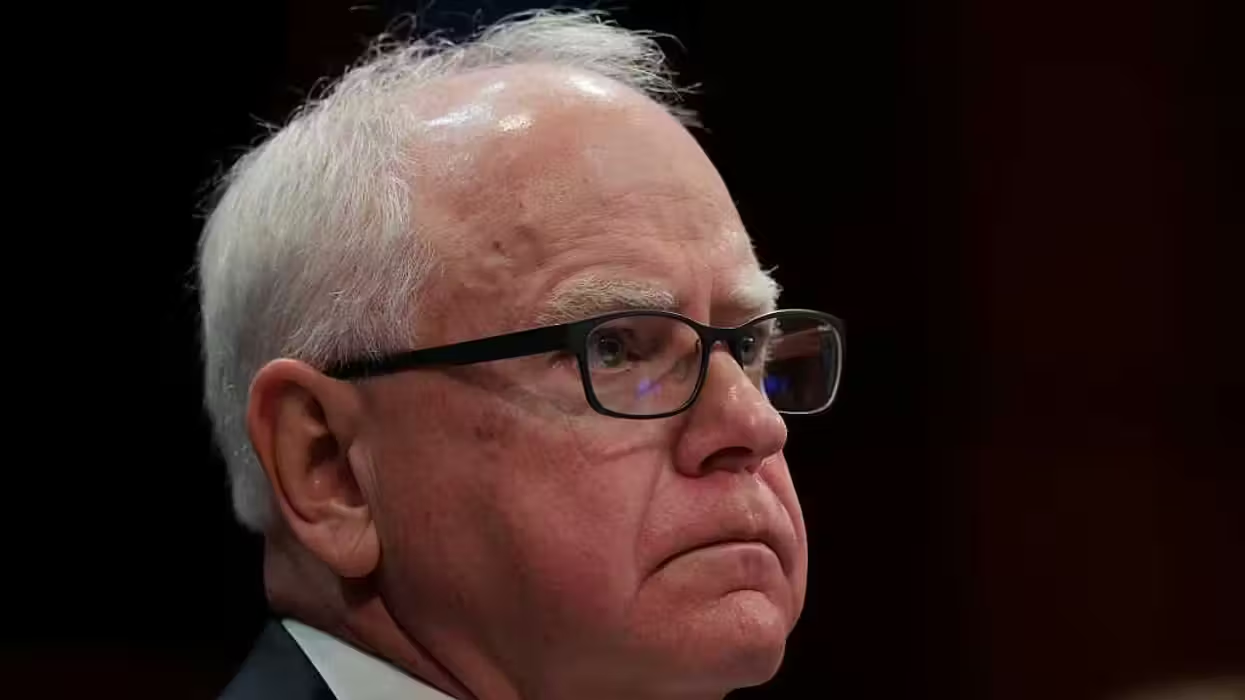
© 2025 Blaze Media LLC. All rights reserved.
A Neo-Marxist Who Sought Cultural Revolution -- Harvard Prof. Roberto Unger
October 19, 2012
Do you know about "critical theory" and "critical legal studies"? Obama does.
--
As America reels from the U.S. embassy attacks in Cairo and Benghazi -- the latter of which left U.S. Ambassador Christopher Stevens, two Navy SEALs and a civil servant dead -- some are questioning where, exactly, President Obama acquired his various domestic and foreign policy stances.
To trace the genesis of the president's world view, some believe it is imperative to examine the cast of characters woven into the tapestry of the Obama's life -- from his Communist mentor and father-figure, Frank Marshal Davis to his political benefactor Bill Ayers; from his spiritual guiding light Rev Jeremiah Wright, to his Harvard Law Professor, the self-proclaimed Marxist revolutionary, Dr. Roberto Mangabeira Unger.
You might recall Dr. Unger from a scathing video he posted in June entitled, "Beyond Obama," in which the political theorist called for the president's defeat in 2012. The reason Unger turned on his former acolyte? Apparently, Obama has not been radical enough for Unger in advancing the cause of progressivism -- which is what the professor considers the true calling and nature of the Democratic Party.
In his acerbic monologue, an austere yet distinguished Unger indicted the president on an array of charges including embracing a policy of "food stamps" while abandoning the American worker. Ultimately, Unger said that in order to truly restore the Democratic Party "as the vehicle for the progressive alternative in the country," Obama must be defeated.
"President Obama must be defeated in the coming election. He has failed to advance the progressive cause in the United States."
Unger's salvo continued as he excoriated the president for pursuing Obamacare at the expense of the overall economy.
So just how progressive is Dr. Roberto Unger?
Hailing from the world's sixth largest economy, the Roscoe Pound Professor of Law at Harvard University has authored over two dozen books on social theory, legal and economic thought, political alternatives and philosophy in the vein of the neo-Marxist Frankfurt School.
Unlike the "father of Communism," however, Unger believes not in a synchronized mass-nationalization of a country's means of production, but rather in a world-wide revolution that is achieved subtly and in stages, whereby institutions are "reformed" or replaced one-by-one.
At home in Brazil, Dr. Unger has a long and well-documented history of political activism, working in the country's early opposition parties against militarism and authoring the founding charter of the Brazilian Democratic Movement Party in 1980. Later, he would become affiliated with the far-left Workers Party' and serve as an adviser on the presidential campaigns for Leonel Brizola and Ciro Gomes.
Unger, too, had his own political aspirations and formed a presidential exploratory committee for himself in 2000 and again in 2006. While his bid was ultimately unsuccessful, the professor did garner a cabinet position in Luiz Inácio Lula da Silva's second-term administration as Secretary of Strategic Affairs. Oddly, the relationship between the two men had had a rocky foundation, as Unger frequently penned articles calling for Lula's administration "the most corrupt of Brazil's history" and calling for his impeachment.
Alas, the saying goes, "if you can't beat'em join'em," and that is precisely what Unger did after Lula's advisor's thought it better to bring Unger into the tent, rather than keep him outside of it where he, likely, would do more harm than good.
Unger would hold his cabinet position with Lula from 2007 to 2009. While in his role, Unger reworked Brazil's national defense strategy and played a key role in forming much of the country's labor laws.
Still, speculation has abounded that Unger proved too radical even for the pro-Hugo Chavez, pro-Mahmoud Ahmadinejad "Lula" and in 2009 Unger left his cabinet position to return to Harvard.
Professor Unger and his pupil
According to Pulitzer Prize-winning journalist David Remnick's book, "The Bridge: The Life and Rise of Barack Obama," the president took two classes with Unger -- Jurisprudence and Reinventing Democracy -- both of which were not popular choices among "conventional students," who considered the conceptual theories embraced by Unger, along with his dry nature, "impenetrable."
“His course descriptions in the catalogue were impenetrable and you knew he was worse in class,” a former peer of Obama’s told Remnick.
The fact that Obama chose to take not one, but a subsequent class with Unger is perhaps indication alone that the impressionable student was, at least somewhat taken by abstruse the Brazilian political theorist.
According to a scholarly volume authored by Unger for the Harvard University Press, Critical Legal Studies, as a movement, was spawned in the seventies by young Harvard Law scholars who rejected the theoretical framework of traditional American jurisprudence. Indeed, according to Unger, critical legal studies was formed in "the leftist tradition" and its intent was to inform "a practice of politics."
"The Critical legal studies movement has undermined the central ideas of modern legal thought and put another conception of law in their place," Unger wrote in his thesis. "This conception implies a view of society and informs a practice of politics.”
“What I offer here is more a proposal that a description," he continued. "But it is a proposal that advances along one of the paths opened up by a movement of ideas that has defied in exemplary ways perplexing, widely felt constraints upon theoretical insight and transformative effort.”
“Critical legal studies arose from the leftist tradition in modern legal thought and practice. Two over-riding concerns have marked this tradition.”
Of course, critical legal studies was founded on the basis of "critical theory," the neo-Marxist philosophy of the Frankfurt School -- an institute formed by German intelligentsia in 1923 -- which for all intents and purposes blended the socio-political theories of Karl Marx with the psychology of Sigmund Freud.
As the Nazis rose to power in the 1930s, academics at the Frankfurt School fled to the U.S. where they inevitably took root in American universities, including Columbia, Princeton, Brandeis, and California at Berkeley.
According to author Dr, Gerald Atkinson, "these intellectual Marxists included Herbert Marcuse, who coined the phrase, 'make love, not war,' during the anti-Vietnam War demonstrations."
Atkinson contends that by "promoting the dialectic of 'negative' criticism, that is, pointing out the rational contradictions in a society's belief system, the Frankfurt School 'revolutionaries' dreamed of a utopia where their rules governed." Further, critical theory "had to contain a strongly imaginative, even Utopian strain, which transcends the limits of reality" and, conveniently, its tenets "would never be subject to experimental evidence."
In other words, Unger, along with others proponents of this school of thought believe their logic and their logic alone is proof enough that critical theory is incontrovertible.
"Only the superior mind was able to fashion the 'truths' from observation of the evidence," Atkinson continues. "There would be no need to test these hypotheses against everyday experience."
Now recall that Unger's approach to realizing the full effects of cultural Marxism in both everyday life and in political application was to do so slowly. Likewise, the Frankfurt School and its adherents sought to create a utopia via a "revolution," but this revolution, according to Atkinson, would only be accomplished by "fomenting a very quiet, subtle and slowly spreading 'cultural Marxism' which would apply to culture the principles of Karl Marx bolstered by the modern psychological tools of Sigmund Freud."
"Thus, 'cultural Marxism' became a marriage of Marx and Freud aimed at producing a 'quiet' revolution in the United States of America. This 'quiet' revolution has occurred in America over the past 30 years. While America slept!"
Unger’s Jurisprudence class, which he once described as “relatively small and very intense,” turned out to be a “radical critique of contemporary Western political thought and legal theory and Obama’s most prolonged academic exposure to the rudiments of Critical Legal Studies.” According to one classmate, Unger’s class was a “multi-step argument” that sought to undermine presumptions of Western legal thought.
The second of Unger’s courses in which Obama enrolled was “Reinventing Democracy,” which offered another critique of Western democracies -- or “neo-liberalism” as the professor dubbed it – and explored the path he felt democracy should take.
Of the Reinventing Democracy course, Remnick writes:
“Unger argued against the ‘mandarins’ who presided over contemporary democratic society and tried, in often highly experimental terms, to urge a rethinking of Western institutions. He urged the adoption of a ‘universal social inheritance’ going well beyond the terms of the New Deal.”
Unger maintained throughout his course that, in the late twentieth century, the Democratic Party had failed to follow through on the precedent set in the New Deal. Of course, no class of Unger’s would be complete without a portion dedicated to expounding on the Republican’s capitulation to big-money and the “white” middle-class majority.
“Everyone recognized that this late-twentieth-century exercise in conservative statecraft would not have enjoyed such success had the Democratic Part, and the progressives in general, not abdicated so completely their responsibility to build and to defend a national alternative.” Unger said.
He went on to explain that leftists feared undoing their “defeat” without prompting a “crisis of dimensions” mirroring that of the Great Depression.
Unger's view of Obama
According to Remnick, Unger has disputed some classmates’ claims that Obama was actually turned off by the theoretical nature of Unger’s curriculum. Rather, the professor noted that Obama “shared in the more philosophical part of the discussion as vigorously as he did the more context-oriented part.”
Unger went so far as to say that presenting his conversations with Obama “under the lens of the trope of philistine activist against starry-eyed theoretician” did both student and professor a great disservice.
Unger, who may have later gone on to be critical of the president, nonetheless defended his acolyte to Remnick, saying that Obama was “always interested in ideas, big and small” and that he “excelled at the style of sociability that is most prized in the American professional and business class.” Unger claims that while Obama did not master the art of “charismatic seduction” during his school days, “he became a virtuoso at it nevertheless.”
Ultimately, Unger viewed Obama, at least at the time "The Bridge" was written, a true American elite, even contending that Obama was “in a real sense, the first American elite president—that is the first who talks and acts as a member of the American elite—since John Kennedy.” Curiously, Unger failed to recall that President George H.W. Bush, too, was an Ivy League graduate and whose family background, much like Kennedy's (and unlike Obama's) comprised a legacy of American stature and privilege.
Remnick asserts that Unger continued a correspondence with Obama via BlackBerry even into the presidential campaign, although Unger maintains he never actually became Obama's "friend." In fact, the self-proclaimed revolutionary said he specifically kept his distance so as not to hurt the Illinois senator's presidential bid.
"I am a leftist, and, by conviction as well as temperament, a revolutionary...Any association of mine with Barack Obama in the course of the campaign could only do harm."
Want to leave a tip?
We answer to you. Help keep our content free of advertisers and big tech censorship by leaving a tip today.
Want to join the conversation?
Already a subscriber?
more stories
Sign up for the Blaze newsletter
By signing up, you agree to our Privacy Policy and Terms of Use, and agree to receive content that may sometimes include advertisements. You may opt out at any time.
Related Content
© 2025 Blaze Media LLC. All rights reserved.
Get the stories that matter most delivered directly to your inbox.
By signing up, you agree to our Privacy Policy and Terms of Use, and agree to receive content that may sometimes include advertisements. You may opt out at any time.







